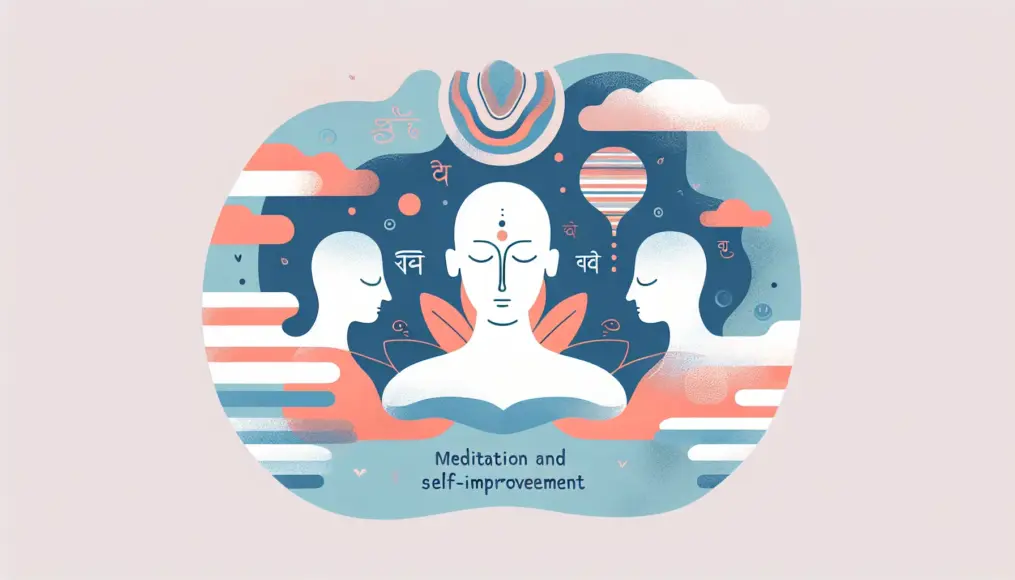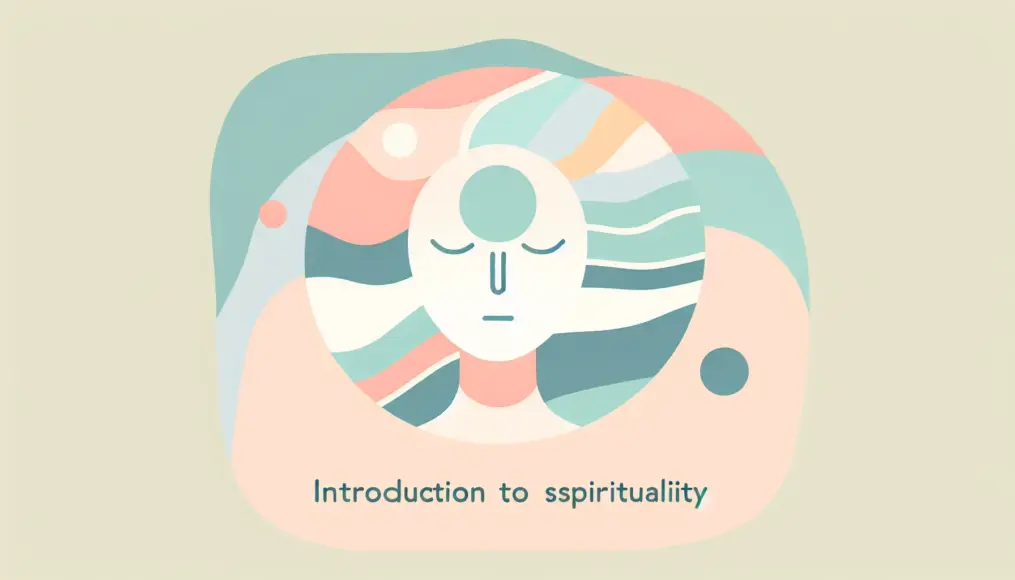Have you ever wondered what meditation really is? It’s a term you often hear when people talk about ways to calm the mind, but it’s much more than just a relaxation technique. Meditation can have a profound impact on both your mind and body. In this article, we’ll delve into the basics of meditation and explore its numerous benefits. We’ll also share some beginner-friendly practices that you can easily incorporate into your daily routine, so stick around until the end!
In the hustle and bustle of everyday life, meditation offers a chance to pause and reflect on yourself. It’s packed with valuable insights that can enhance your mental well-being and help alleviate stress. So, let’s embark on this journey into the world of meditation together!
- An overview of the fundamental definitions and practices of meditation
- Scientifically-backed benefits of meditation
- Simple meditation techniques for beginners and how to weave them into daily life
What is Meditation? Understanding Its Definition and Basics
Many of you might be curious about what meditation really is. While it’s widely known as a means to clear the mind and relax, its rich history and various practices may not be as familiar. In this article, we’ll explore the history of meditation and some basic ways to practice it. Let’s start by looking at how meditation originated and evolved over time.
The History and Background of Meditation
Meditation is an ancient practice that has been carried out across the globe for thousands of years. In regions like India and China, it developed as part of religious rituals and spiritual training. Particularly in Buddhism and Hinduism, meditation has become a crucial technique for cultivating the mind and achieving enlightenment. As time progressed, meditation transcended its religious roots and gained recognition in modern society as a method for improving mental health and reducing stress.
The primary goal of meditation is to reflect on oneself and attain inner peace. By quieting the mind and distancing oneself from external distractions, individuals can deepen their self-awareness. This practice can help alleviate everyday stress and anxiety.
- Meditation is an ancient practice that has been around for thousands of years.
- It developed as part of religious training in India and China.
- Today, it is widely recognized as a means to enhance mental health and reduce stress.
Basic Practices for Meditation
To get started with meditation, you don’t need any special tools or skills. Begin by finding a quiet spot where you can relax. Close your eyes and focus on your natural breathing. By concentrating on your breath, your mind will start to calm down, and distractions will begin to fade away.
For beginners, it’s advisable to start with short sessions. Try meditating for about five minutes initially, and gradually increase the duration over time. By practicing daily, you’ll find it easier to experience the benefits of meditation.

If you’re interested in the surprising effects of daily meditation, check out this article: “The Surprising Benefits of Daily Meditation.” It delves into how incorporating meditation into your daily routine can lead to not just inner peace and stress relief but also unexpected boosts in creativity and improvements in relationships.
- Meditation can be practiced without any special tools or skills.
- Relax in a quiet place and focus on your breathing.
- Beginners should start with five minutes and gradually extend the time.
The Scientific Benefits of Meditation
Numerous studies have been conducted on the effects of meditation on both the mind and body. In particular, its impact on the brain and its effectiveness in reducing stress have garnered significant attention. Many individuals have found that incorporating meditation into their routines can enhance their mental well-being and lead to a more fulfilling life. In this section, we will explore how meditation affects the brain and alleviates stress.
How Does Meditation Affect the Brain?
Research indicates that engaging in meditation can lead to changes in the structure and function of the brain. For instance, studies have shown that consistent meditation can increase the volume of gray matter in the brain—an essential area involved in memory and emotional regulation. This increase is believed to enhance concentration and decision-making abilities, as well as improve resilience to daily stressors.
Moreover, meditation promotes changes in brainwave activity, fostering a state of relaxation. This calming effect helps individuals manage their emotions more effectively. When the mind is at ease, it becomes easier to cultivate positive thoughts, leading to an overall boost in happiness.
- Studies show that meditation increases gray matter in the brain
- Enhanced concentration and decision-making abilities, along with improved stress resilience
- A relaxed state through meditation facilitates positive thinking
Stress Reduction and Mental Health
Meditation is an exceptionally effective method for reducing stress. When stress accumulates, it can have various negative effects on both the mind and body. However, through meditation, individuals can reset their minds, effectively decreasing stress levels. Many people who practice meditation report a reduction in irritability and anxiety, helping them maintain better mental health.
Additionally, meditation not only promotes emotional stability but is also known to improve sleep quality. With fewer worries and reduced stress, individuals can fall asleep more easily in a relaxed state, leading to restorative sleep. This improvement in sleep quality contributes to a more productive and fulfilling day.
- Meditation is highly effective for stress reduction
- Enhances emotional stability, reducing irritability and anxiety
- Improves sleep quality, enriching daytime activities
A Beginner’s Guide to Practicing Meditation
If you’re looking to start meditating but aren’t sure where to begin, you’re not alone. The good news is that meditation is incredibly simple and doesn’t require any special tools or skills to get started. In this section, we’ll introduce some easy meditation techniques that are perfect for beginners and show you how to incorporate them into your daily life. With a little practice, you’ll be on your way to nurturing your mental well-being.
Simple Meditation Techniques
One of the best meditation practices for beginners is “breath meditation.” Find a quiet spot to sit, close your eyes, and take a moment to settle your mind. Focus your attention on your breath—pay close attention to the sensations of inhaling and exhaling. If your mind starts to wander, gently guide your thoughts back to your breathing without forcing them away.
Start with just five minutes, and as you become more comfortable, gradually increase the duration. By practicing daily, you’ll begin to notice positive changes in your mindset.
- “Breath meditation” is highly recommended for beginners
- Sit in a quiet place, close your eyes, and focus on your breath
- Start with five minutes and gradually extend your time
How to Incorporate Meditation into Daily Life
Incorporating meditation into your daily routine doesn’t have to mean setting aside a special time. You can also make use of small pockets of time throughout your day. For instance, try meditating for a few minutes during your commute, on a break, or right before bedtime. These brief moments can help reduce daily stress and maintain a sense of inner peace.
Creating the right environment for meditation is also essential. Consider setting up your favorite space or lighting a soothing scented candle to create a relaxing atmosphere. These little touches can make your meditation experience much more enjoyable.
- You can meditate during small breaks in your day
- Practice a few minutes of meditation while commuting, on breaks, or before bed
- Set up a relaxing environment with your favorite space or scents
Uncovering the Hidden Needs of Meditation from a Contrarian Perspective
When people hear the word “meditation,” they often think of it as a way to calm the mind or relieve stress. However, there’s much more to it than that. In this section, we’ll explore some surprising issues that meditation can help solve, as well as clarify common misconceptions. By understanding the hidden needs that many people overlook, you’ll be able to utilize meditation more effectively.
Surprising Issues That Meditation Can Address
Meditation not only reduces stress and anxiety but can also assist in tackling a variety of challenges. For those struggling with focus or a lack of motivation for work or study, meditation can be incredibly beneficial. By centering the mind, you can achieve clearer thinking and a heightened awareness of your personal goals.
Moreover, meditation can help with emotional regulation. When you find yourself feeling frustrated or down in your daily life, meditation allows you to observe your emotions objectively, enabling you to respond calmly. This can lead to healthier relationships and improved interactions with others.
- Meditation aids in enhancing concentration
- Helps control emotions and respond calmly
- Assists in resolving various everyday challenges
Misconceptions About Meditation and the Truth Behind Them
There are several misconceptions surrounding meditation. One common belief is that “meditation is a religious practice, so it doesn’t relate to me.” While it’s true that some forms of meditation have religious roots, a significant number of people today practice it regardless of their religious background. Meditation is widely accepted as a means to promote mental well-being.
Another misconception is that “meditation requires special talent, and not everyone can do it.” In reality, meditation is something anyone can easily start. No special skills or experience are necessary; simply focusing on your breath for a few minutes is a great place to begin. By trying it out, you can discover the techniques that work best for you.
- Meditation can be practiced without any religious ties
- Anyone can easily start, and no special talent is required
- You can find a meditation method that suits you best
Summary
In this article, we explored the concept of meditation—its definition, fundamentals, scientific benefits, practical methods, and even some hidden needs. Meditation not only helps calm the mind but also enhances concentration, emotional control, and stress reduction. There are accessible ways for beginners to get started, and by incorporating meditation into daily life, you can achieve a richer state of mental well-being.
While there are many misconceptions surrounding meditation, understanding that it’s something anyone can easily practice may encourage you to experience its benefits. Why not embark on a journey through meditation to find inner peace and gain a deeper understanding of yourself?
- Meditation is effective for mental health and stress relief.
- There are simple methods that anyone can start with.
- Meditation can be easily integrated into daily life, regardless of religious beliefs.
So, why not start meditating right now and experience the richness it can bring to your life? We’d love to hear your experiences and thoughts in the comments!


Comment